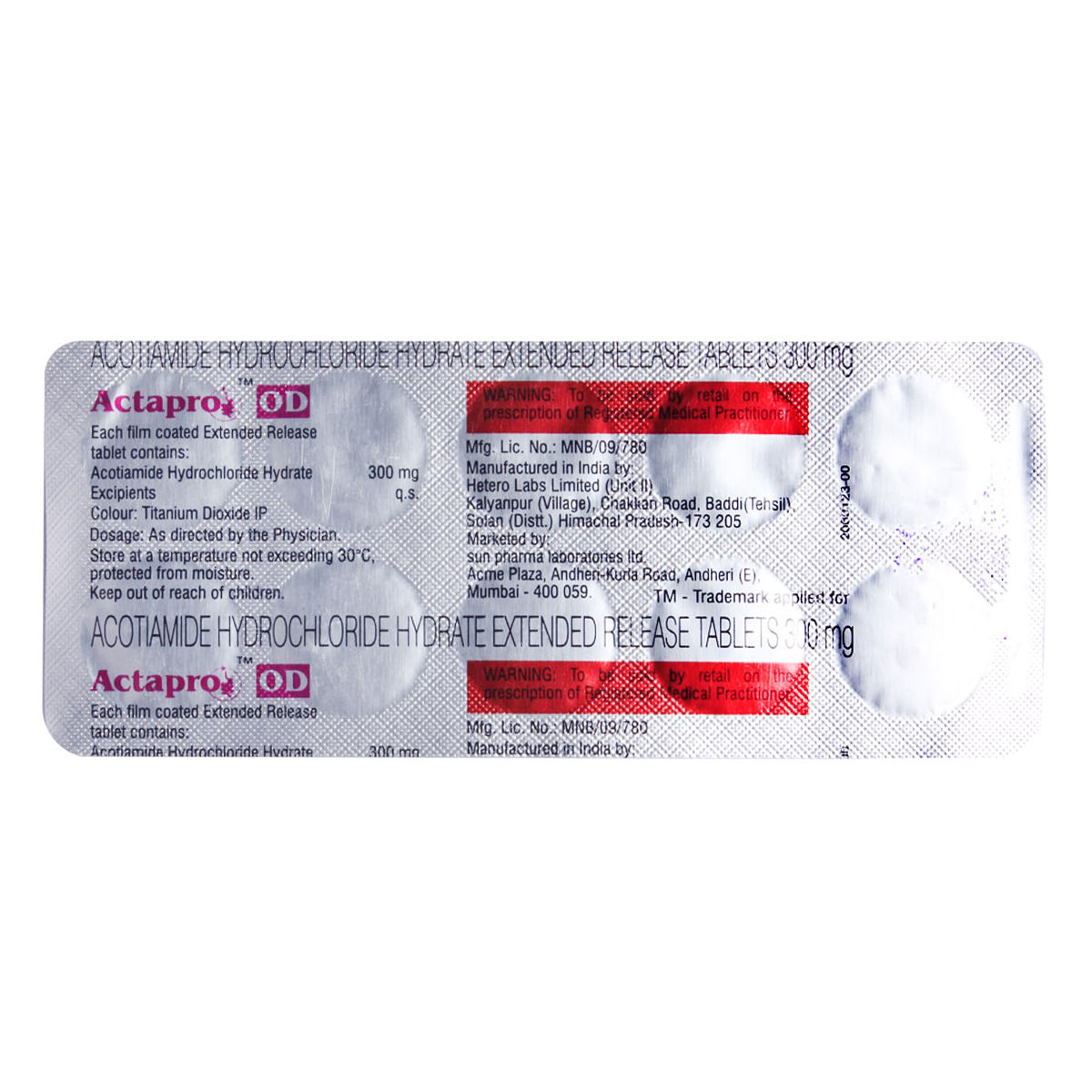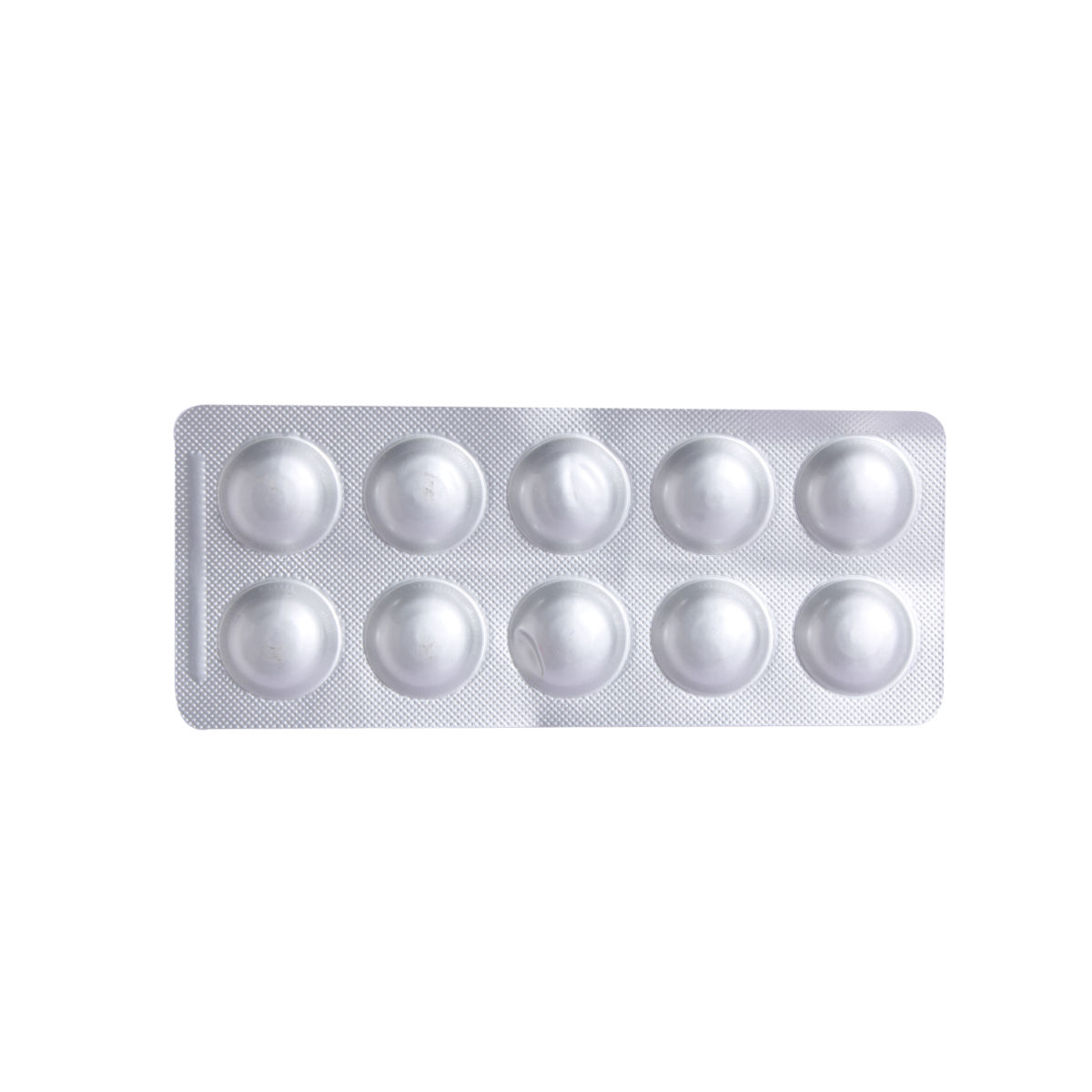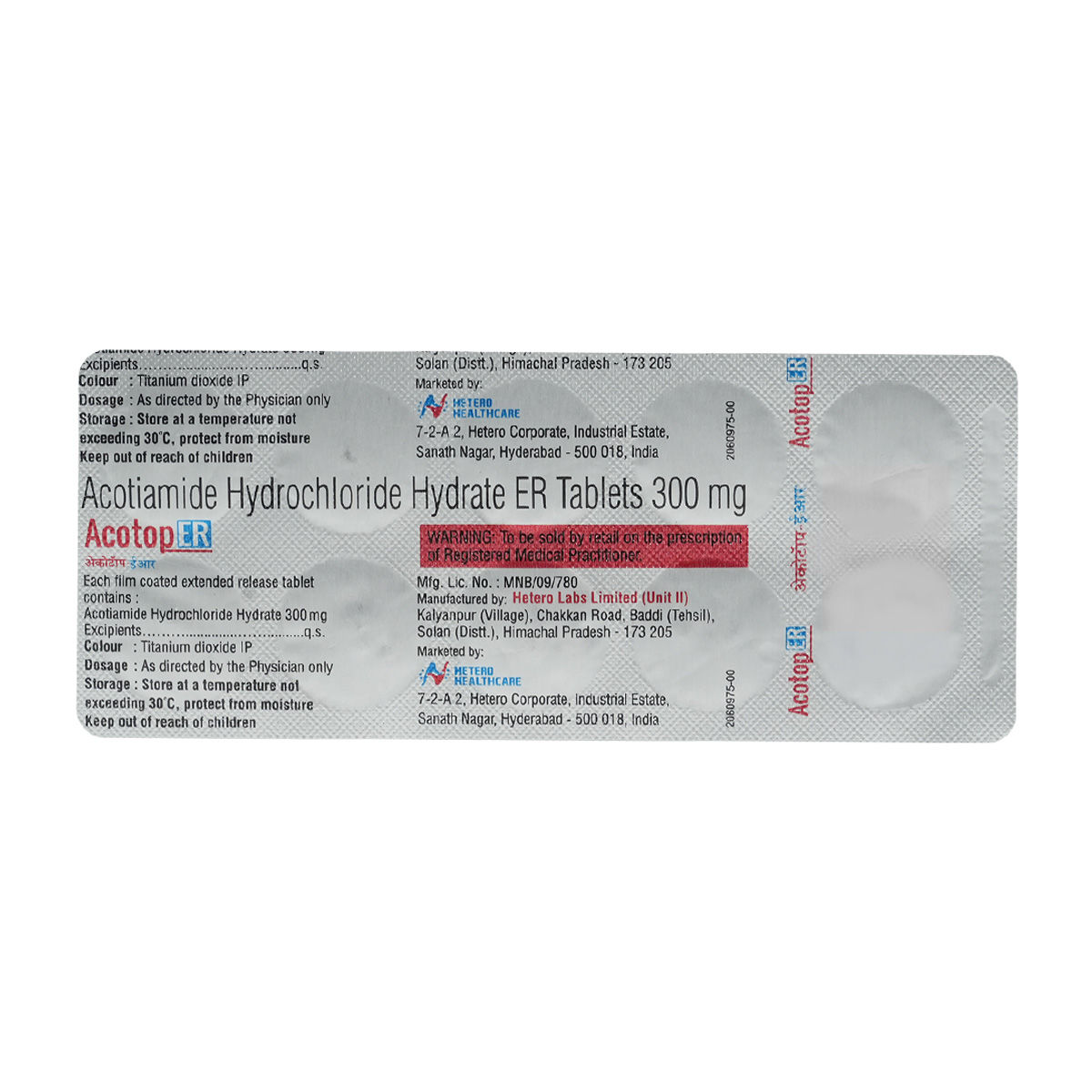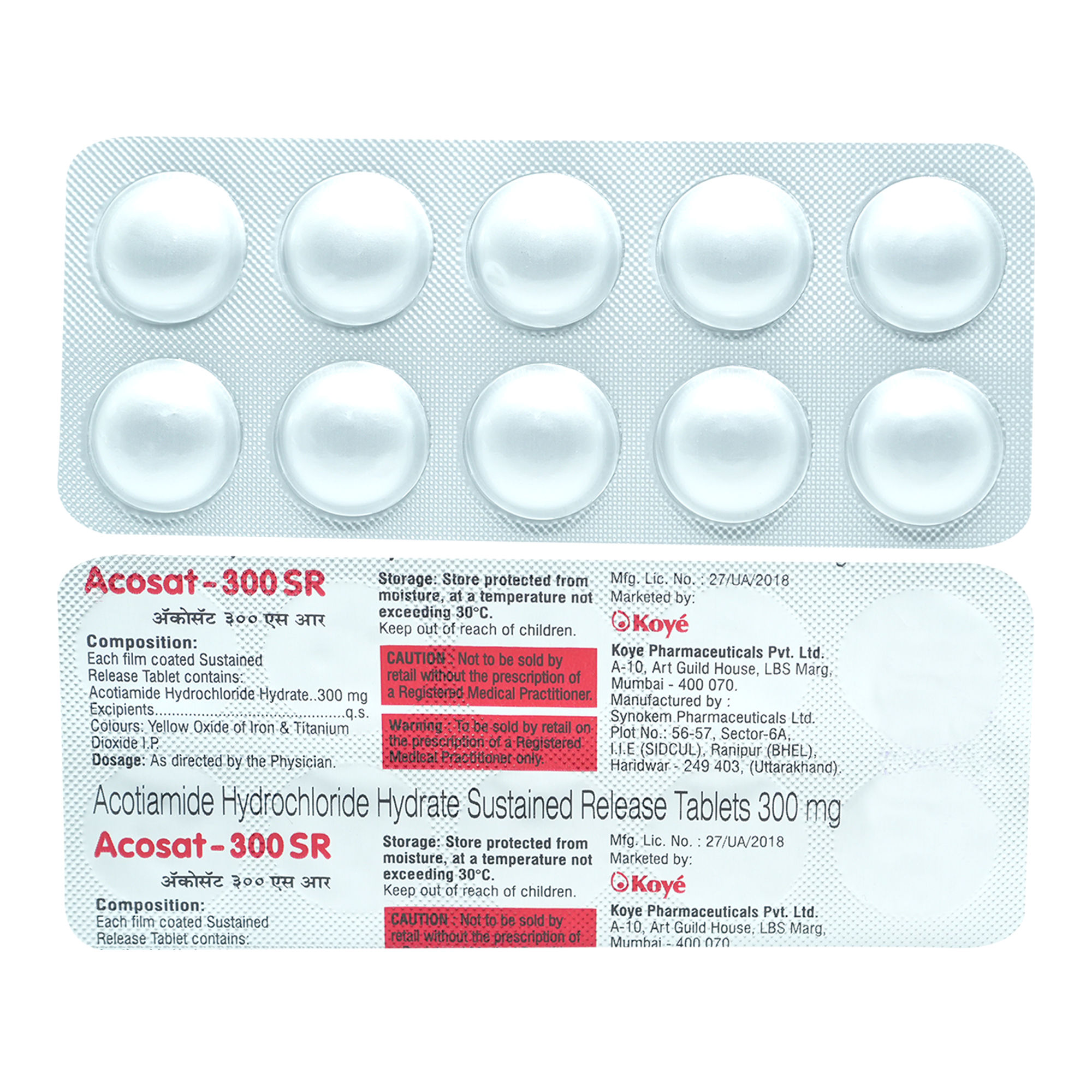Acoride 300 ER Tablet

₹319.5*
MRP ₹355
10% off
₹301.75*
MRP ₹355
15% CB
₹53.25 cashback(15%)
Free Delivery
With Circle membership
(Inclusive of all Taxes)
This offer price is valid on orders above ₹800. Apply coupon PHARMA10/PHARMA18 (excluding restricted items)
Know Your Delivery Time
Provide Delivery Location
Available Offers
 Prescription drug
Prescription drugWhats That

Secure Payment

India's Most Trusted Pharmacy

Genuine Products
Composition :
Manufacturer/Marketer :
Consume Type :
Return Policy :
About Acoride 300 ER Tablet
Acoride 300 ER Tablet is used in the treatment of functional dyspepsia (indigestion). Functional dyspepsia (FD) arises when your upper digestive tract demonstrates symptoms of pain, upset, or early or extended fullness for a month or longer. This situation can be chronic and can change the quality of life. There are some ways to decrease discomfort caused by functional dyspepsia, including medications, lifestyle changes, and therapy.
Acoride 300 ER Tablet contains 'Acotiamide' that increases the level of a chemical (acetylcholine) concentration, which increases the gastrointestinal peristalsis movement. Therefore, it increases intestine motility, accelerates gastric emptying time, and improves food movement throughout the gastrointestinal tract.
Take Acoride 300 ER Tablet as prescribed by your doctor. You are advised to take Acoride 300 ER Tablet for as long as your doctor has prescribed it for you, depending on your medical conditions. You may experience headaches, diarrhoea, constipation, rashes, and dizziness. Most of these side effects of Acoride 300 ER Tablet do not require medical attention and gradually resolve over time. However, if the side effects persist or worsen, please consult your doctor.
If you are known to be allergic to Acoride 300 ER Tablet or any other medicines, please tell your doctor. If you are pregnant or breastfeeding, please inform your doctor before taking Acoride 300 ER Tablet. Acoride 300 ER Tablet should not be taken under conditions like rashes and itching. Acoride 300 ER Tablet causes drowsiness and dizziness. It is advisable not to drive unless you are alert. The effect of Acoride 300 ER Tablet on alcohol is unknown. It is advisable to inform your doctor before consumption.
Uses of Acoride 300 ER Tablet
Directions for Use
Medicinal Benefits
Acoride 300 ER Tablet is primarily used in the treatment of functional dyspepsia (indigestion). Acoride 300 ER Tablet is a new gastroprokinetics (enhances the movement of food from the mouth through the stomach and intestines) used for treating gastrointestinal symptoms such as heartburn, vomiting, and nausea. It helps relieve symptoms like bloating after a meal, pain/discomfort in the upper abdomen, and early satiety (feeling full after eating only a little food). Acoride 300 ER Tablet works by increasing the level of a chemical (acetylcholine) concentration, which increases the gastrointestinal peristalsis movement. Therefore, it increases intestine motility, accelerates gastric emptying time, and improves food movement throughout the gastrointestinal tract.
How Acoride 300 ER Tablet Works
Storage
Side Effects of Acoride 300 ER Tablet
Headache
Diarrhea
Constipation
Rashes
Dizziness
Abnormal liver function
What if I have taken an overdose of Acoride 300 ER Tablet
Drug Warnings
Acoride 300 ER Tablet should not be taken if you are known to be allergic to Acoride 300 ER Tablet or any other medicines. Please tell your doctor. Patients with kidney or liver disease should be monitored carefully, and the dose should be adjusted accordingly. Acoride 300 ER Tablet should not be taken in a condition like heart disease as Acoride 300 ER Tablet may cause irregular heartbeat. Before taking Acoride 300 ER Tablet, inform your doctor if you ever had gastrointestinal bleeding, jaundice, or intestinal perforation (small hole in the intestine). If you are pregnant or breastfeeding, please inform your doctor before taking Acoride 300 ER Tablet. Acoride 300 ER Tablet should not be taken in the conditions like rashes and itching. Acoride 300 ER Tablet causes drowsiness and dizziness, it is advisable to not drive unless you are alert. The effect of Acoride 300 ER Tablet with alcohol is unknown. It is advisable to inform your doctor before consumption.
Diet & Lifestyle Advise
Avoid foods such as tomatoes, coffee, chocolate, and spicy and fatty foods as they may cause heartburn or worsen the condition.
Eat small portions of food frequently.
Do regular exercise, such as for a minimum of 30 minutes per day. Maintain a healthy body weight as obesity may also cause heartburn.
Avoid foods that can worsen your symptoms, like citrus fruits, coffee, and high fat, pickled and spicy foods.
Avoid consumption of alcohol and quit smoking.
Habit Forming
Therapeutic Class
Acoride 300 ER Tablet Substitute

Acogut 300 ER Tablet 10's
by AYUR
₹46.04per tabletActapro OD Tablet 10's
by AYUR
₹39.78per tabletAcomore OD 300 Tablet 10's
by Others
₹35.91per tabletAcotrust OD 300 Tablet 10's
by AYUR
₹41.90per tabletAcotibien-300 SR Tablet 10's
by Others
₹32.40per tablet
Product Substitutes
Alcohol
Caution
The interaction of alcohol with Acoride 300 ER Tablet is unknown. Please consult a doctor before consuming alcohol while using Acoride 300 ER Tablet.
Pregnancy
Caution
Avoid taking Acoride 300 ER Tablet if you are pregnant unless prescribed by a doctor. Please consult your doctor if you have any concerns regarding this, your doctor will prescribe only if the benefits outweigh the risks.
Breast Feeding
Caution
This Acoride 300 ER Tablet is not recommended unless prescribed by a doctor. Please consult your doctor if you have any concerns regarding this, your doctor will prescribe only if the benefits outweigh the risks.
Driving
Caution
Acoride 300 ER Tablet may cause dizziness. So, it is not recommended to drive or operate heavy machinery when you take Acoride 300 ER Tablet.
Liver
Caution
Take Acoride 300 ER Tablet with caution, especially if you have a history of Liver diseases/conditions. The dose may be adjusted by your doctor as required.
Kidney
Caution
Take Acoride 300 ER Tablet with caution, especially if you have a history of Kidney diseases/conditions. The dose may be adjusted by your doctor as required.
Children
Caution
Avoid using Acoride 300 ER Tablet in children as there is no information available due to lack of research. Inform your doctor before using Acoride 300 ER Tablet.
FAQs
Country of origin
Disclaimer
Author Details
We provide you with authentic, trustworthy and relevant information

















